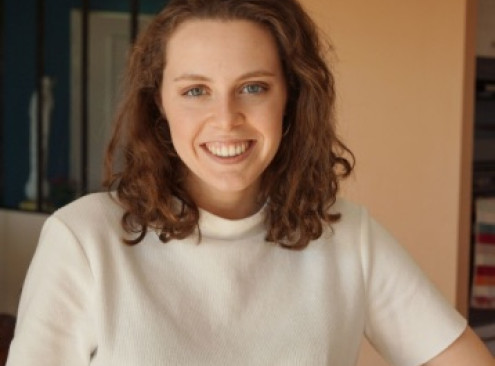© Pint of Science, 2025. All rights reserved.
Why do our earliest relationships shape our adult lives? How does melting Arctic ice lead to toxic blooms? What can microbes teach us about global health? Join us for a fascinating evening where psychology, climate science, and infectious disease collide. From the cradle to the poles to the lab, discover how hidden forces are shaping our world—and how science is rising to meet the challenge.
Harmful Algal Blooms in the Warming Arctic
Evie Fachon
(PhD Candidate)
As sea ice melts and water temperatures warm, communities in the Arctic face many new challenges. One of these is the appearance of toxic harmful algal blooms which threaten seafood safety and ecosystem health. Evie Fachon, a PhD student in the MIT-WHOI Joint Program, is part of a team collaborating to study the conditions that allow these blooms to thrive in northern waters, as well as how they impact the food web. From offshore research vessels to coastal communities, it’s an all-hands-on-deck effort to understand the changing Arctic.

Attachement and childhood development
Lucile Chauvin
(Psychologist)
"Why Your Therapist Talks About Your Parents"
Have you ever wondered why therapy often circles back to childhood, even when you came to talk about anxiety, work stress, or relationships? This talk explores the deep roots of our adult struggles through the lens of attachment theory—a powerful framework that explains how early bonds with caregivers shape the way we connect, cope, and relate to others today. Join us to discover how understanding your past can illuminate your present—and help you move forward with greater clarity and compassion.
Have you ever wondered why therapy often circles back to childhood, even when you came to talk about anxiety, work stress, or relationships? This talk explores the deep roots of our adult struggles through the lens of attachment theory—a powerful framework that explains how early bonds with caregivers shape the way we connect, cope, and relate to others today. Join us to discover how understanding your past can illuminate your present—and help you move forward with greater clarity and compassion.

Meet the Marvelous Mathematical Models that Mitigate Mischievous Microbes
Mui Pham
(Epidemiologist)
In this talk, we’ll explore the wide-ranging methods infectious disease “detectives” use, from clinical data analysis to genomic sequencing, to uncover how and why disease outbreaks happen, and how to mitigate them. We’ll demystify what mathematical models are and highlight the many roles they play in shaping public health strategies. We’ll also delve into one of the most pressing challenges in global health: antimicrobial resistance, and the strategies epidemiologists use to monitor and mitigate this growing threat. Join us for a behind-the-scenes look at how modern infectious disease epidemiology brings diverse data and tools together to keep communities safe.

Map data © OpenStreetMap contributors.